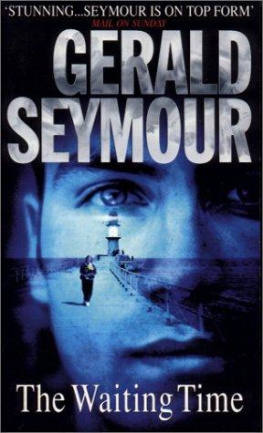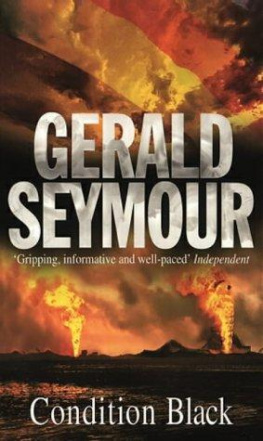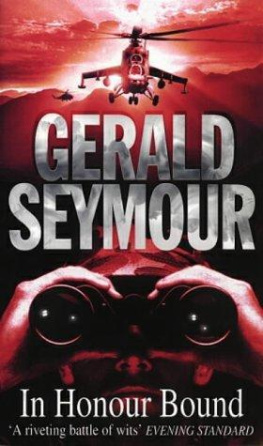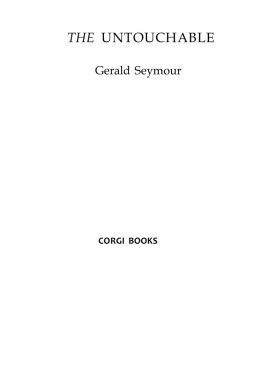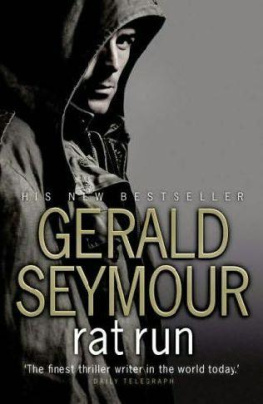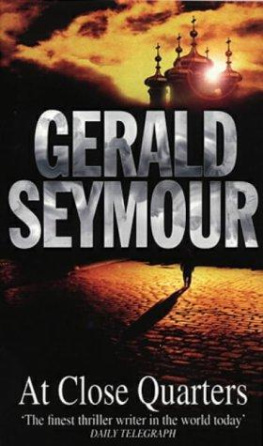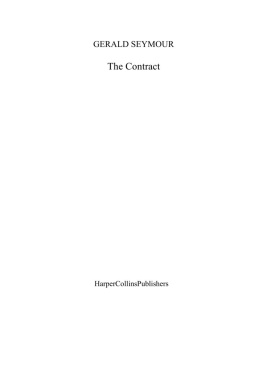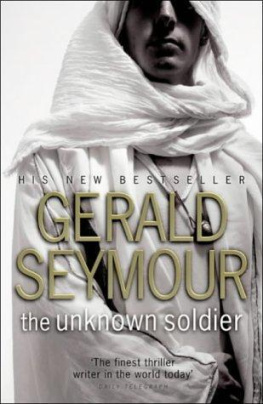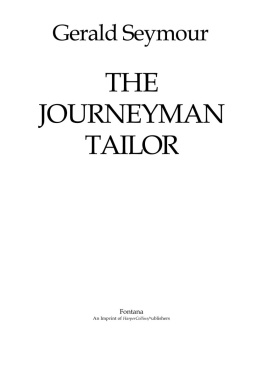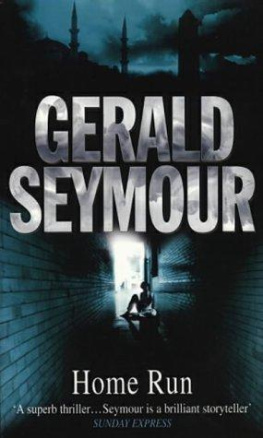Gerald Seymour - Holding the Zero
Here you can read online Gerald Seymour - Holding the Zero full text of the book (entire story) in english for free. Download pdf and epub, get meaning, cover and reviews about this ebook. genre: Detective and thriller. Description of the work, (preface) as well as reviews are available. Best literature library LitArk.com created for fans of good reading and offers a wide selection of genres:
Romance novel
Science fiction
Adventure
Detective
Science
History
Home and family
Prose
Art
Politics
Computer
Non-fiction
Religion
Business
Children
Humor
Choose a favorite category and find really read worthwhile books. Enjoy immersion in the world of imagination, feel the emotions of the characters or learn something new for yourself, make an fascinating discovery.

- Book:Holding the Zero
- Author:
- Genre:
- Rating:4 / 5
- Favourites:Add to favourites
- Your mark:
- 80
- 1
- 2
- 3
- 4
- 5
Holding the Zero: summary, description and annotation
We offer to read an annotation, description, summary or preface (depends on what the author of the book "Holding the Zero" wrote himself). If you haven't found the necessary information about the book — write in the comments, we will try to find it.
Holding the Zero — read online for free the complete book (whole text) full work
Below is the text of the book, divided by pages. System saving the place of the last page read, allows you to conveniently read the book "Holding the Zero" online for free, without having to search again every time where you left off. Put a bookmark, and you can go to the page where you finished reading at any time.
Font size:
Interval:
Bookmark:
Gerald Seymour
Holding the Zero
Prologue
What he feared most was fire.
He was wedged into a shallow space between the slight angle of the tin roofing and the beams to which the rough planks of the rooms ceilings were nailed.
The darkness around him was total.
If the hut were set ablaze, if the flames licked up and the smoke surged, he would be flushed out, roasted or suffocated to death.
Where they had put him, he thought, was the most precious and secret place in the village, where an honoured and respected guest would be hidden from danger. He lay on their cache of rifles, angular and hard under his body, and was pressed against the sharp shapes of the ammunition boxes. Because he was the guest, he alone had been thrust up with their hands, as his feet scrabbled for a grip on their shoulders into the hidden cavity. He had been granted their hospitality and therefore his life was more important than their own.
He could hear the voices around the hut, some raised and abusive and some that wheedled and pleaded.
It had been late in the communal meal he had shared with the village men when the jeeps had come up the barren stone track towards the village, their lights shafting ahead and on to the mountain scrub flanking the track. As the guest he had been sitting cross-legged at the right side of his friend, sipping the juice that was poured for him, dipping his fingers into the iron pot to search for scraps of meat, scooping the palm of his hand into the rice bowl, and then the jeeps had arrived. Moments after they had heard the engines, as they had seen the lights, he had been plucked up and dragged like a rag doll away from the rug on which hed sat, and the clutch of men around him had stampeded him into the hut, had opened the trapdoor and pushed him into the small cavity. The trap had been closed and he had heard scraping fingers smear mud and charcoal over the outlines of the opening. The darkness had been around him and he had lain so still, barely daring to draw breath. He had listened and he had prayed that the hut would not be fired.
He heard the abuse of the soldiers, the pleading of the village men, the screams of the women, and the single shots. He did not know the language of the soldiers, or of the village men, but he understood the sounds of the womens screams and the message the shots sent.
The soldiers would have come from the garrison town of Amadiyah to the west or from the camp at Rawandiz to the south. The information would have been given, for reward, that he was in the village. He would be a prize capture. He would be portrayed as a spy, not as a harmless, innocent guest of the mountain people. He understood, lying on his stomach on their old firearms and against their ammunition boxes, that the soldiers shouted at and abused the village men to make them reveal his hiding place. The men would be pleading that they did not know, had not seen a foreigner, a spy, and they were beaten, taken from the main corralled cowering group, while the women screamed for their lives as they were shot.
There was the smell of fire and the crackle of it from other huts in the close-set village that perched above a patchwork of fields and below the steep orchards. A few huts, chosen at random, were burned but it was a still, cool night and the flames did not spread from those to the adjacent ones.
The soldiers were in the hut, moving below him. He heard them rummage in the bedding and there was the crack of plates breaking as a cupboard was emptied. He stifled his breath. As a spy he might be hanged or shot, he might be tortured, and his protestations of a simple friendship would be ignored. When the soldiers left the hut in which he hid, the sound of the chaos they brought continued. Any of the village men who were condemned, or their women, might have saved themselves by denouncing him and showing the soldiers the camouflaged trap-door. He was in their hands, they held his life.
He lay in the roof space all through the night, and he was not betrayed.
The jeeps drove away down the track and headed back to the garrison at Amadiyah or the camp at Rawandiz. He was in debt, he owed his life to the silence of the people of the village.
The trapdoor was opened.
The light of the dawn flushed onto his stiff, shivering body.
He was helped down. He walked out into the low early-morning sunlight.
They had already started to dig the graves in the burial ground beside the grazing meadow that was closest to the village. He saw the sweat beading on the faces and chests of the men who swung pickaxes to break the concrete-hard ground, while others shovelled away the rocky earth. The women cradled the heads of the dead and keened their sorrow. He stepped around the ejected cartridge cases and the pools of drying dark blood that had been spilled so that he, their guest, should live.
The burden of obligation crushed him.
He said to his friend, Tell them that I will always remember the value that they have given my life and the depth of their sacrifice, that the shedding of their blood for me is something that I will never forget to my last, dying day. Tell them that I will, and I do not know how or when, repay the debt of blood and life.
His friend translated, but the repetition of his words in their own tongue seemed not to be heard by the people in their grief. Then, his friend said quietly to him, It is time to go, esteemed Basil, time to leave.
I meant what I said.
Of course, esteemed Basil, of course but you did not say how or when.
He was put into an old, rusted truck and driven away from the village, where some of the huts smouldered, away from the deepening grave pits. They would have thought his words were empty and his promises worth nothing. They drove towards Nimrud where he had left his car in the care of the archaeologists before taking the journey into the mountains in his friends truck. He would be back at the base beside the Euphrates river by nightfall, in the officers mess in time to celebrate the third anniversary of his Queens accession to the throne that night, and the talk around him would be of Prime Minister Churchills health, and rising taxation at home, and the worsening security situation in Kenya, and the new Bob Hope film. He would say nothing to his fellow officers of where he had been, and of the debt that he owed.
Many times, as they went down the track, he looked back at the smoke spirals and the diminishing figures of the men who swung the pickaxes, and he thought of the blood that was dry on the earth and the bright sheen of the cartridge cases.
He had pledged his word.
Chapter One
Their home was a single-roomed building for the family to live, eat and sleep in.
Augustus Henderson Peake sat cross-legged on the floor of stamped-down earth within the circle of women around the fire.
The stones of the walls, some roughly shaped and some rounded by the torrent in the gorge below the house, were held in place by mud substituting as cement or mortar. In places there were gaps through which the wind off the mountains came in stiletto stabs.
There were no windows and the door of crude-cut wood planks was closed on the night, but the wind shook it, and the penetrating blasts whipped at the smoke from the fire inside the circle. It scurried up towards the rooms rafters of tree branches with peeling bark. Nailed above them was a sheet of flapping white plastic, and through the plastics ripped tears he could see the dried-out underside of the turfs that were laid over the roof.
There was a hole in the centre of the roof through which the smoke escaped.
Against one wall was an old mattress covered by scattered sacking and blankets, and he thought it was where the parents of the children would sleep. The childrens beds were at the wall facing the closed door, more sacking and blankets but no mattress; there were four children pressed close to each other for warmth and each of them, in turn, hacked deep coughs from their chests and throats. The light in the room, by which the women worked, was from a single stinking oil lamp that threw cavorting shadows of the womens heads and shoulders against the upper walls and into the ceiling where the smoke gathered before finding the release of the hole.
Font size:
Interval:
Bookmark:
Similar books «Holding the Zero»
Look at similar books to Holding the Zero. We have selected literature similar in name and meaning in the hope of providing readers with more options to find new, interesting, not yet read works.
Discussion, reviews of the book Holding the Zero and just readers' own opinions. Leave your comments, write what you think about the work, its meaning or the main characters. Specify what exactly you liked and what you didn't like, and why you think so.

